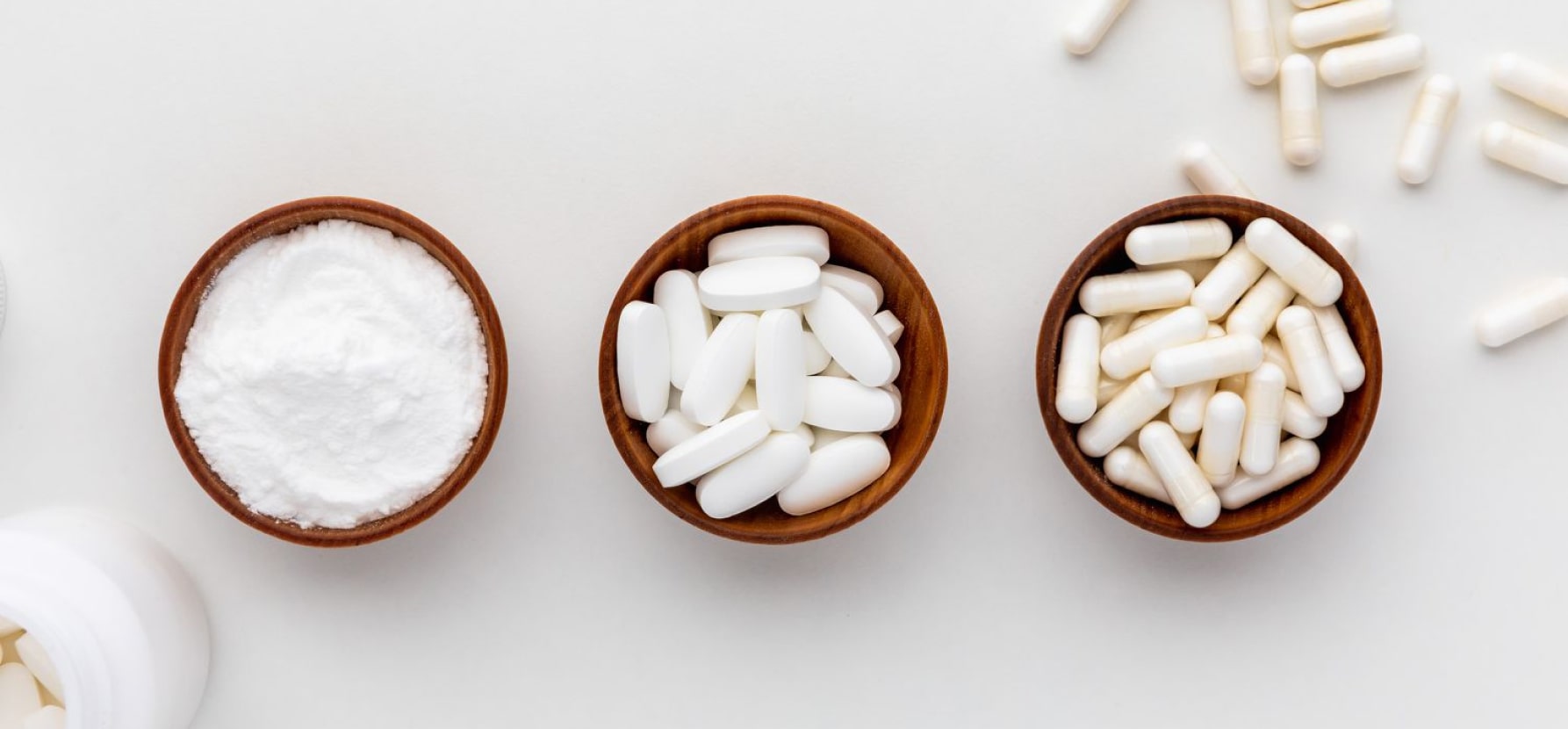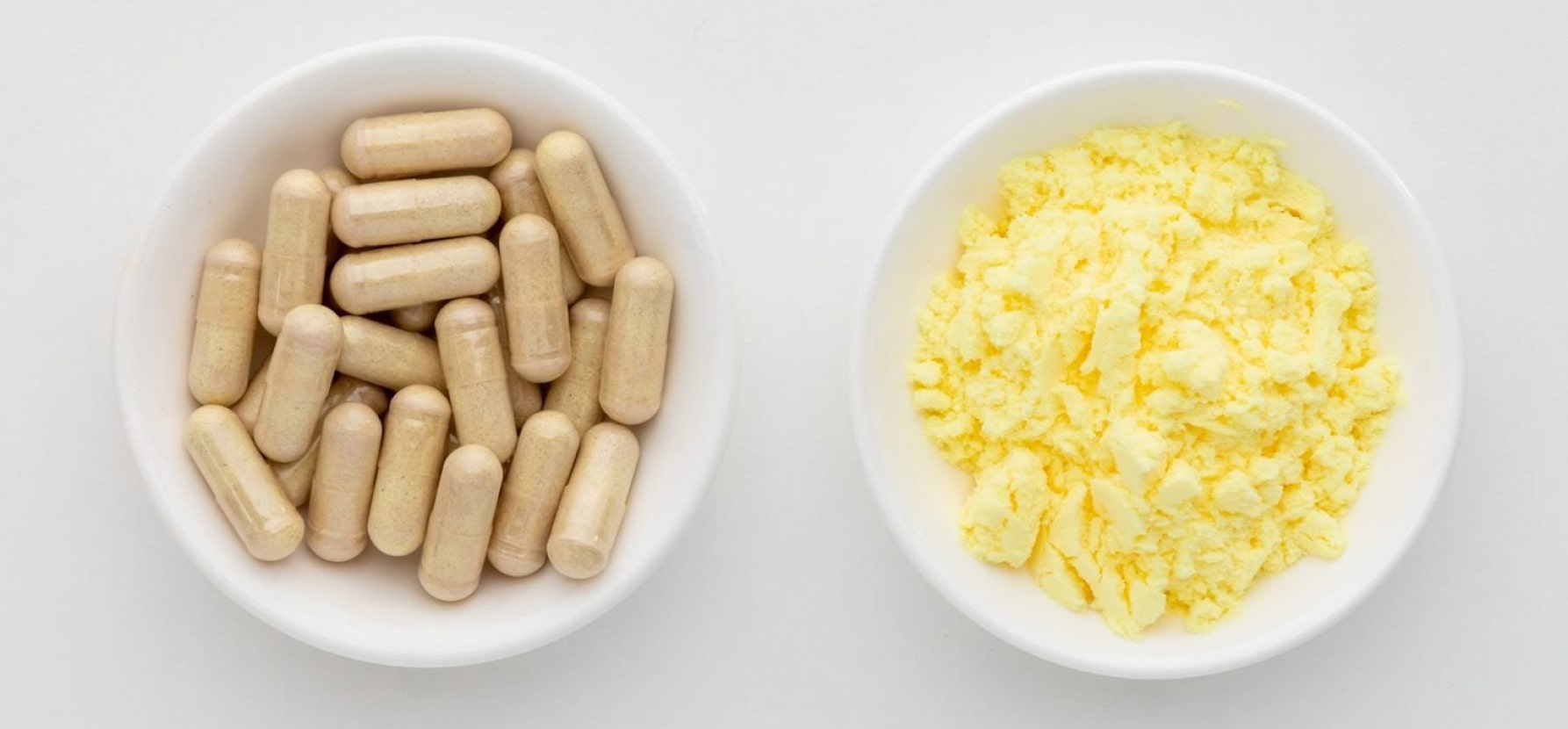Date
August 14, 2024
Written By
Team DarDoc
Category
Guide
There are two times in your life when you will be at crossroads, and one will be when you choose what micro-nutrients you should supercharge yourself with for stunning skin. Amongst many other benefits (detox, enhanced metabolism, higher energy, metal clarity to name a few), IV drips are likely the best medium to fix your skin from within. Which brings us back to the original point, if the goal is the same, how does one choose between the smorgasbord of vitamins and minerals? And how do they know if the mixture they selected would work well synergistically for optimum absorption?
Well, here goes nothing.

1. Vitamin C
Why You Might Be Deficient
Vitamin C is a powerhouse antioxidant that is crucial for collagen synthesis, wound healing, and combating free radicals. Despite its abundance in citrus fruits and vegetables, a significant number of people fall short of the recommended daily intake of 65-90 mg. This deficiency can be attributed to poor dietary choices, smoking, and increased oxidative stress in modern lifestyles.
Best For
- Brightening skin tone
- Reducing hyperpigmentation
- Promoting collagen production
Works Best With
- Vitamin E: Enhances the antioxidant effect.
- Glutathione: Improves overall skin radiance by reducing oxidative stress.
2. Vitamin B12
Why You Might Be Deficient
Vitamin B12, essential for DNA synthesis and red blood cell formation, is predominantly found in animal products. Vegans, vegetarians, and those with certain gastrointestinal conditions often have lower levels, far below the recommended 2.4 micrograms daily.
Best For
- Reducing skin redness and inflammation
- Improving overall skin health
Works Best With
- Folic Acid: Assists in red blood cell formation.
- Iron: Enhances oxygen delivery to skin cells.

3. Biotin (Vitamin B7)
Why You Might Be Deficient
Biotin is vital for healthy hair, skin, and nails. Deficiencies, although rare, can result from prolonged antibiotic use, excessive alcohol consumption, and conditions like Crohn's disease. The daily requirement is about 30 micrograms, but many people don’t meet this due to dietary insufficiencies.
Best For
- Strengthening hair and nails
- Enhancing skin hydration and smoothness
Works Best With
- Silica: Promotes skin elasticity.
- Zinc: Supports skin repair and regeneration.
4. Glutathione
Why You Might Be Deficient
Glutathione is a potent antioxidant produced in the liver, but levels can be depleted by poor diet, chronic stress, and exposure to environmental toxins. While there isn’t a set daily requirement, maintaining high levels is crucial for skin health and detoxification.
Best For
- Brightening skin complexion
- Reducing oxidative stress
- Detoxifying the body
Works Best With
- Vitamin C: Enhances glutathione absorption and recycling.
- Alpha-Lipoic Acid: Regenerates oxidized glutathione.

5. Zinc
Why You Might Be Deficient
Zinc is essential for immune function and skin health. Deficiencies are common due to poor dietary intake and certain health conditions. The recommended daily intake is 8-11 mg, but many people fail to meet this due to insufficient dietary sources or absorption issues.
Best For
- Reducing acne
- Promoting wound healing
- Balancing oil production
Works Best With
- Vitamin A: Enhances skin cell turnover.
- Biotin: Supports overall skin health.
6. Vitamin E
Why You Might Be Deficient
Vitamin E is a fat-soluble antioxidant that protects cell membranes from oxidative damage. Despite its presence in nuts, seeds, and vegetable oils, many people don’t get the recommended 15 mg daily due to poor dietary habits.
Best For
- Moisturizing skin
- Reducing UV damage
- Healing scars and stretch marks
Works Best With
- Vitamin C: Enhances antioxidant protection.
- Selenium: Boosts immune function and skin health.
Book a session

7. Magnesium
Why You Might Be Deficient
Magnesium plays a crucial role in over 300 enzymatic reactions, including those that impact skin health. Deficiencies are widespread due to modern farming practices and poor dietary intake, with recommended daily amounts ranging from 310-420 mg.
Best For
- Reducing inflammation
- Improving skin hydration
- Enhancing elasticity
Works Best With
- Calcium: Balances skin functions.
- Vitamin D: Supports overall skin health.
8. Selenium
Why You Might Be Deficient
Selenium is a trace mineral that acts as a powerful antioxidant. Deficiency is rare but can occur in regions with selenium-deficient soils. The recommended daily intake is about 55 micrograms, essential for maintaining skin health and protecting against UV damage.
Best For
- Protecting against UV damage
- Reducing acne and inflammation
Works Best With
- Vitamin E: Enhances antioxidant effects.
- Zinc: Supports skin repair and immune function.

9. Copper
Why You Might Be Deficient
Copper is vital for collagen formation and skin elasticity. Deficiencies can result from inadequate dietary intake or malabsorption issues. The recommended daily intake is around 900 micrograms.
Best For
- Promoting collagen and elastin production
- Reducing wrinkles and fine lines
Works Best With
- Zinc: Balances copper levels for skin health.
- Vitamin C: Aids in collagen synthesis.
10. Alpha-Lipoic Acid
Why You Might Be Deficient
Alpha-Lipoic Acid (ALA) is a potent antioxidant that helps reduce inflammation and promote healthy skin. While not considered an essential nutrient, ALA levels can be low in those with poor diets or high oxidative stress.
Best For
- Reducing fine lines and wrinkles
- Improving skin texture and tone
Works Best With
- Glutathione: Enhances antioxidant recycling.
- Vitamin C: Boosts overall antioxidant protection.

Conclusion:
Phew.
If you absorbed all of that, you are a champion, and we salute you. If you absorbed some little tidbits here and there, you are human and you should trust the experts to concoct the best skincare IV cocktails for you. At least, your decisions now will be well-informed and rounded, and you wouldn’t mind spreading your newly gained knowledge to everybody around you.
So, go ahead and supercharge your skin with the right IV drip – because sometimes, the secret to stunning skin and a big smile is just a vitamin infusion away.
Book a session
Date
August 14, 2024
Written By
Team DarDoc
Category
Guide


















